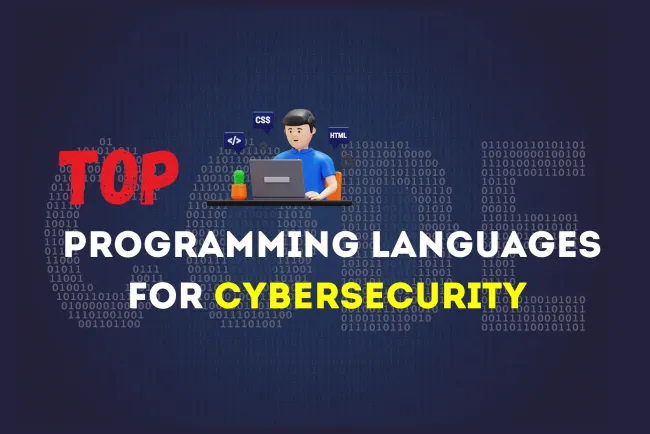How to Learn Cybersecurity for Free | A Complete Step-by-Step Guide for Beginners
Cybersecurity is an in-demand field with high-paying job opportunities, and the good news is that you can start learning it for free. By utilizing free online courses, hands-on labs, open-source tools, and community support, beginners can build a strong foundation in cybersecurity without spending money. Platforms like Cybrary, TryHackMe, Hack The Box, and Cisco Networking Academy offer free resources to learn ethical hacking, network security, and incident response. Free cybersecurity certifications from Google, Microsoft, and Fortinet can enhance your resume. Hands-on experience through Capture The Flag (CTF) challenges, bug bounties, and open-source projects helps in gaining practical skills. With dedication and consistency, anyone can start a cybersecurity career without financial investment.

Table of Contents
- Introduction
- Why Learn Cybersecurity for Free?
- Step-by-Step Guide to Learning Cybersecurity for Free
- Conclusion
- FAQs
Introduction
Cybersecurity is one of the most in-demand career fields, offering job security, competitive salaries, and opportunities for continuous learning. Many aspiring professionals wonder: Can I learn cybersecurity for free? The good news is that there are plenty of free resources available to help you build a strong foundation in cybersecurity.
This guide will explore:
- Free online courses and certifications
- Best free platforms for hands-on cybersecurity practice
- Open-source tools to enhance your learning
- Step-by-step roadmap to becoming a cybersecurity expert without spending money
Whether you are a beginner or someone looking to switch careers, this guide will provide you with the best free cybersecurity learning resources.
Why Learn Cybersecurity for Free?
With the rise of cyber threats, companies are willing to pay top talent to secure their systems. Learning cybersecurity for free can:
- Help you build essential skills without financial investment
- Allow you to explore different cybersecurity fields before committing to a paid course
- Make you job-ready through hands-on labs and free certification opportunities
By using free resources wisely, you can enter the field without spending thousands on training programs.
Step-by-Step Guide to Learning Cybersecurity for Free
1. Understand the Basics of Cybersecurity
Before diving into advanced topics, it's essential to grasp fundamental cybersecurity concepts. You can start with:
- Cybrary – Free cybersecurity courses for beginners
- SANS Cyber Aces – Basic security training
- OpenSecurityTraining – Free lectures on security fundamentals
Topics to focus on:
Networking basics (TCP/IP, DNS, VPNs, Firewalls)
Operating systems (Linux, Windows security)
Cyber threats (Malware, Phishing, Ransomware)
2. Learn Networking and System Administration
A solid understanding of networking and system administration is crucial in cybersecurity. You can use:
- Cisco Networking Academy – Free networking courses
- Practical Networking – Free networking tutorials
- Linux Fundamentals (EDX, Cybrary, Udemy Free Courses) – Learn Linux, a key OS for cybersecurity
3. Explore Free Cybersecurity Courses and Certifications
Several platforms offer free cybersecurity courses with optional paid certifications:
| Platform | Free Course Available |
|---|---|
| TryHackMe | Cybersecurity fundamentals & hands-on labs |
| Hack The Box Academy | Ethical hacking & penetration testing |
| Coursera & EDX | Intro to cybersecurity (Free access, paid certificates) |
| Cybrary | Free ethical hacking and SOC analyst courses |
| Google Cybersecurity Certificate | Free trial available |
4. Practice Hands-On Cybersecurity Skills for Free
Hands-on experience is essential for cybersecurity careers. Try these free platforms:
- TryHackMe – Beginner-friendly hands-on labs
- Hack The Box – Advanced penetration testing practice
- Blue Team Labs Online – Defensive security challenges
- OWASP Juice Shop – Web application security testing
5. Use Free Cybersecurity Tools
To gain practical experience, use open-source security tools such as:
- Wireshark – Network traffic analysis
- Nmap – Network scanning
- Burp Suite – Web security testing
- Metasploit – Penetration testing framework
6. Participate in Capture The Flag (CTF) Challenges
CTF competitions allow you to solve real-world security challenges. Popular platforms include:
- CTFTime – Find cybersecurity competitions
- PicoCTF – Beginner-friendly challenges
- OverTheWire – Linux-based security challenges
7. Follow Cybersecurity Blogs and Communities
Stay updated with the latest cybersecurity trends:
- Krebs on Security – Cyber threat news
- The Hacker News – Industry updates
- WebAsha Technologies Blog – Free learning resources and cybersecurity tips
8. Join Free Cybersecurity Learning Communities
Networking with professionals can accelerate your career growth. Join:
- Reddit (r/cybersecurity, r/netsec) – Cybersecurity discussions
- LinkedIn Groups – Connect with experts
- Discord & Telegram Groups – Real-time cybersecurity discussions
9. Get Free Cybersecurity Certifications
Some organizations offer free certifications to help you build your resume:
- Google Cybersecurity Certificate (Free Trial)
- Microsoft Security Fundamentals (Free on Microsoft Learn)
- IBM Cybersecurity Analyst Professional Certificate (Scholarships Available)
- Fortinet Network Security Expert (NSE 1 & 2 Free Courses)
10. Apply for Cybersecurity Internships & Jobs
Once you have gained enough knowledge, apply for entry-level jobs or internships to gain real-world experience. Some companies offer paid internships even to beginners with self-taught skills.
Conclusion
Learning cybersecurity for free is entirely possible if you utilize the right resources. By taking advantage of free courses, hands-on labs, and open-source tools, you can build the skills needed for a cybersecurity career without spending money. Platforms like TryHackMe, Cybrary, and Hack The Box provide valuable hands-on training, while free certifications from Google, Microsoft, and IBM can enhance your resume. The key is consistency, hands-on practice, and networking with cybersecurity professionals to land your first job in the field.












![Top 10 Ethical Hackers in the World [2025]](https://www.webasha.com/blog/uploads/images/202408/image_100x75_66c2f983c207b.webp)

![[2025] Top 100+ VAPT Interview Questions and Answers](https://www.webasha.com/blog/uploads/images/image_100x75_6512b1e4b64f7.jpg)









